Last Updated: April 2024
If you have ever rented a hotel room for the night, gone to a restaurant or visited an amusement park, then you have been to a hospitality property. Hospitality real estate primarily serves travelers and leisure seekers, which include various types of properties such as hotels, motels, bars, restaurants, golf courses, and more. While these types of properties are great places to unwind and relax, behind the scenes they are actually rental properties generating financial returns for investors.
What is a Hospitality Property?
Hospitality Real Estate Definition
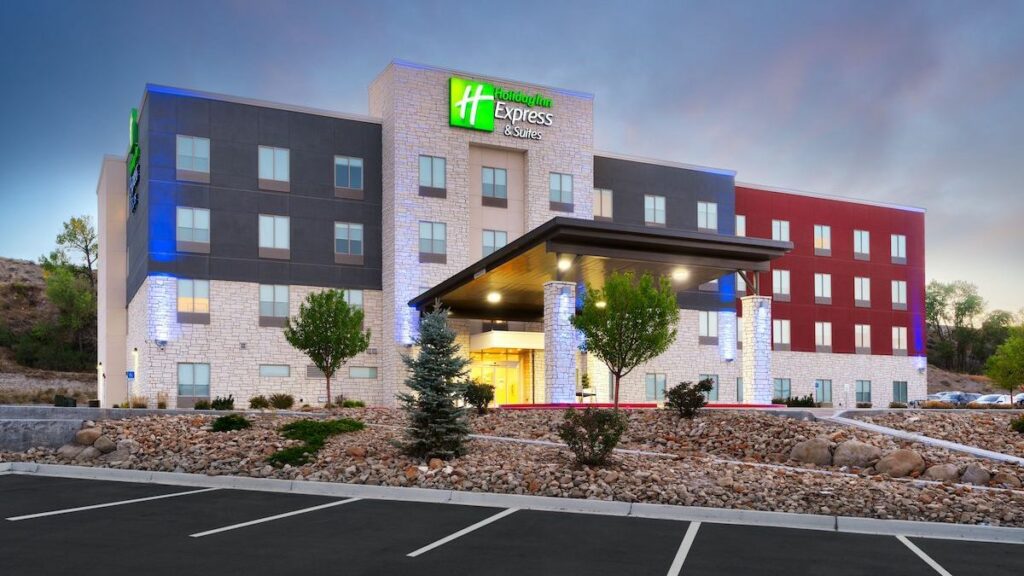
Hospitality real estate refers to properties that are specifically designed to offer a leisure service or interim lodging. They usually fall into one of four categories: Food & Beverage, Travel & Tourism, Lodging, and Recreation, in which they can be a destination or a stop on the path of their customer’s journey.
Hospitality Real Estate Explained
Hospitality rental properties are spaces where people stay, dine, or enjoy leisure activities, often when they’re away from home. Imagine them as a mix of places ranging from hotels and inns to dining spots, tourist attractions, and event venues. They can be as grand as a luxury resort or as intimate as a family-run bed and breakfast. In some, you might find yourself attending a conference or a wedding, while in others, you might just grab a meal or enjoy a spa day. They play a huge role in travel and leisure, offering folks experiences tailored to their needs, whether it’s for relaxation, business, or pleasure. In essence, they are the backbone of the travel and entertainment industry, making sure visitors have memorable experiences.
5 Categories of Hospitality Real Estate
If you’re thinking of investing in a hospitality rental property, you might be wondering what types of properties fall into this category of rental real estate. Hospitality properties can broadly be divided into five main categories: Food and Beverage properties, Travel and Tourism properties, Lodging properties, Recreation properties, and Event & Meeting properties. We take a look at each category below:
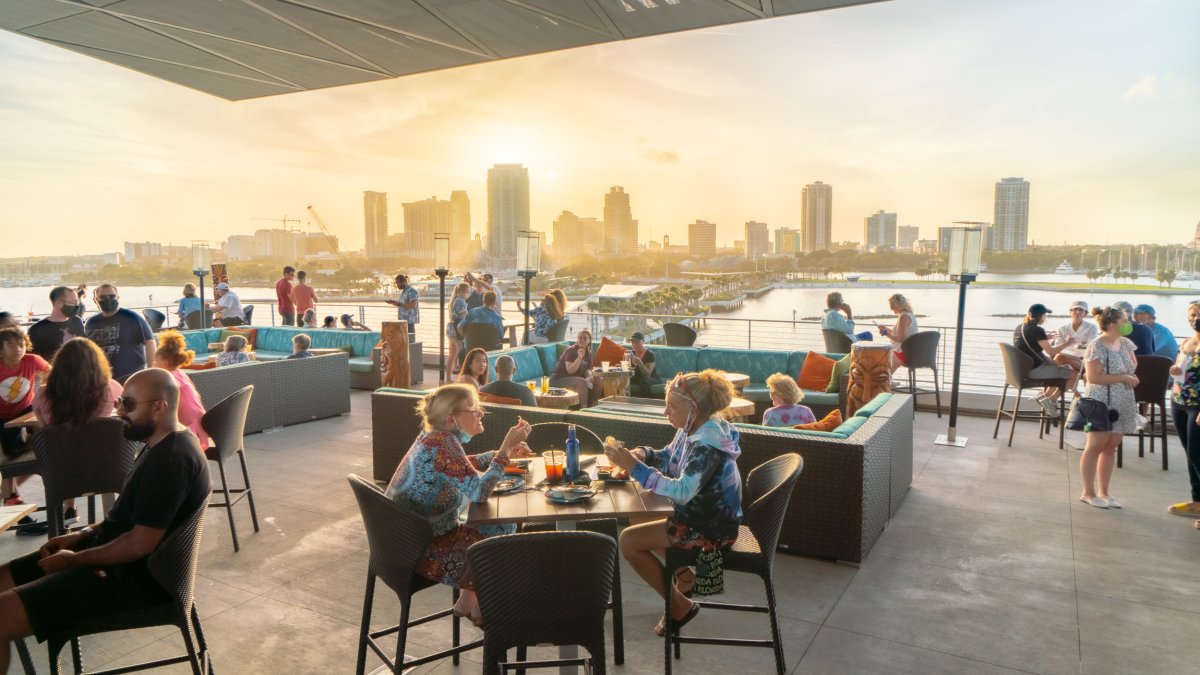
Food and Beverage Properties
Food and beverage properties, also known as F&B, are a type of hospitality business that provides food and drinks to customers. F&B businesses are found in a variety of settings, including retail properties, hotels, resorts, casinos, and event venues. Many of these businesses are part of larger hospitality companies, while others operate independently. No matter their size or ownership, all F&B businesses share a common goal: to provide their guests with a positive dining experience. To achieve this goal, F&B businesses must focus on several key areas, including menu selection, food and beverage preparation, customer service, and ambiance. These factors all play a role in creating a positive dining experience for guests, and they must be carefully managed by F&B businesses in order to be successful.
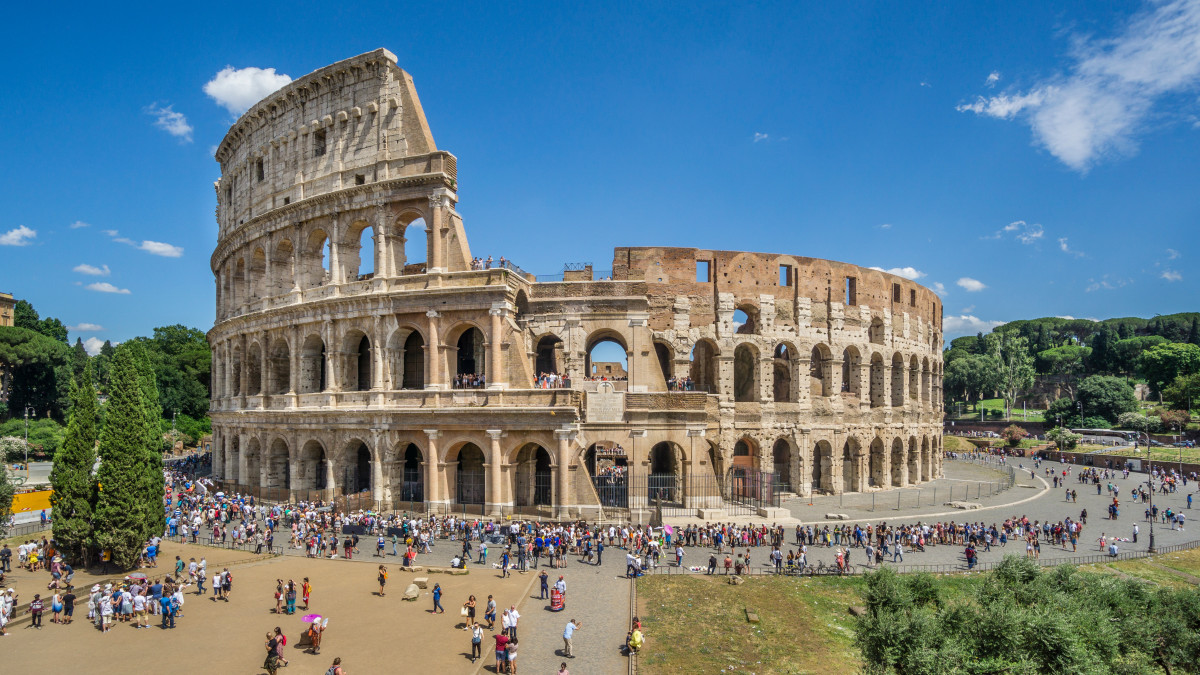
Travel and Tourism Properties
Travel and tourism properties help facilitate the ability for people to visit and travel outside of their immediate surroundings, whether it’s a student traveling to see The Colosseum in Rome after a semester at college or a traveling salesperson on a Midwest tour for their latest widget. Within the broader context of hospitality, travel, and tourism touches almost every aspect of the category, including where people stay, how they spend their recreation time, where they eat, and so on. The travel and tourism sector describes one of the globe’s largest industries with a global economic contribution of over $9 trillion dollars. Travel and tourism properties are usually located in areas that are frequented by tourists. These areas can be desirable for tourists to visit for a variety of reasons such as favorable weather, tourist attractions, and well-known famous cities around the globe (e.g. London, New York City, etc).
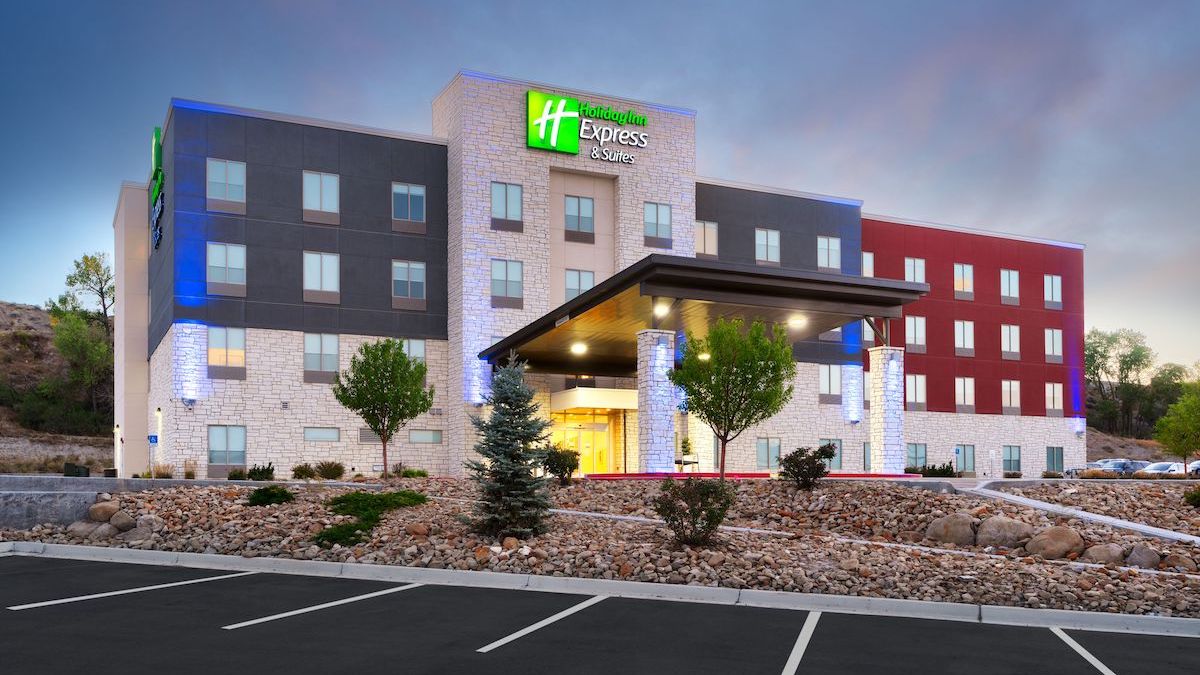
Lodging Properties
A lodging property is a property that provides overnight accommodation, typically for a fee. Hotels, short and long term vacation rentals, motels, resorts, and bed and breakfasts are all examples of lodging properties. Lodging properties can also include apartments, condos, and other types of housing that are rented out to guests. The operators behind these properties can range from a sole mom-and-pop operator, to large multinational hotel operators like the Hilton Worldwide Holdings Inc. (Commonly just called “Hilton”) who oversee several different brands of lodging properties at different levels of affordability. Lodging properties are usually located within close proximity to tourist areas, or near convenient freeway access for travelers.
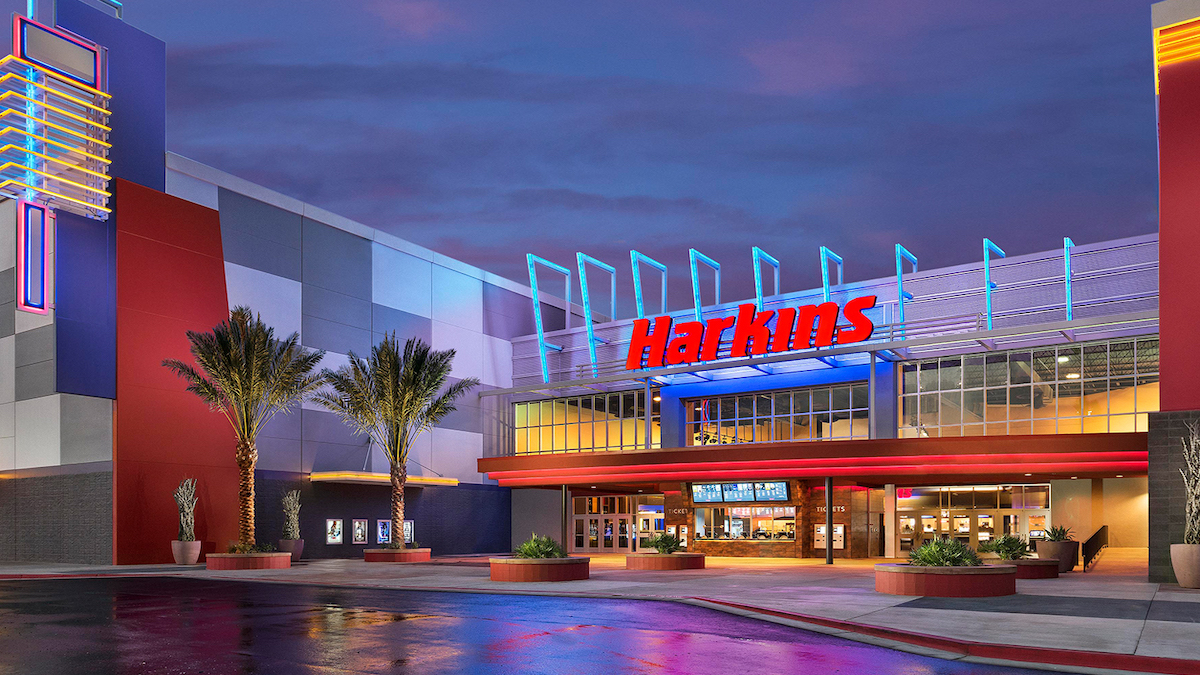
Recreation Properties
Recreation properties are those that support businesses that give customers the ability to entertain themselves for typically a short period such as a few hours to a few days or weeks. In urban settings, recreation properties are usually developed to support a recreational business (e.g. Movie Theater), but in more rural settings recreational properties can be developed to support more outdoor-friendly activities (e.g. Camping). Examples of recreational properties can range from water parks, campgrounds, zoos, parks, swimming pools, hunting grounds, and more. Most recreation businesses generate revenue via admission tickets, concession sales, food and beverage sales, and merchandise sales.

Event and Meeting Properties
The meetings and event industry helps facilitate business meetings, social gatherings, and large social events. They can range in size from a small wedding all the way up to full stadiums hosting NFL football games or a famous musician’s concerts. Event centers have become focal points for many cities due to the revenue they bring in and the significant cultural opportunities they offer visitors. Owners of these properties also usually sell “ownership rights” in order to allow a private business to amend their company name to the property (e.g. Crypto.com Arena for $700 Million). Common events held at these types of properties include sports games, concerts, holiday celebrations, business, and trade shows, farm shows, large family reunions, and other uses where folks need to gather en masse.
21 Types of Hospitality Properties
Within the 5 categories of hospitality properties are different types with each having its own set of investment considerations. Below we’ll explore the different types of hospitality properties and what you need to know before investing in one since each offers different amenities and services to its guests.
Hotels
This is the most common type of hospitality property. Hotels range in size from small, independently-owned properties to large, international chain hotels. Most hotels offer a variety of room types, including standard rooms, suites, and executive-level rooms. Services typically offered by hotels include room service, laundry service, concierge service, and valet parking.
Motels
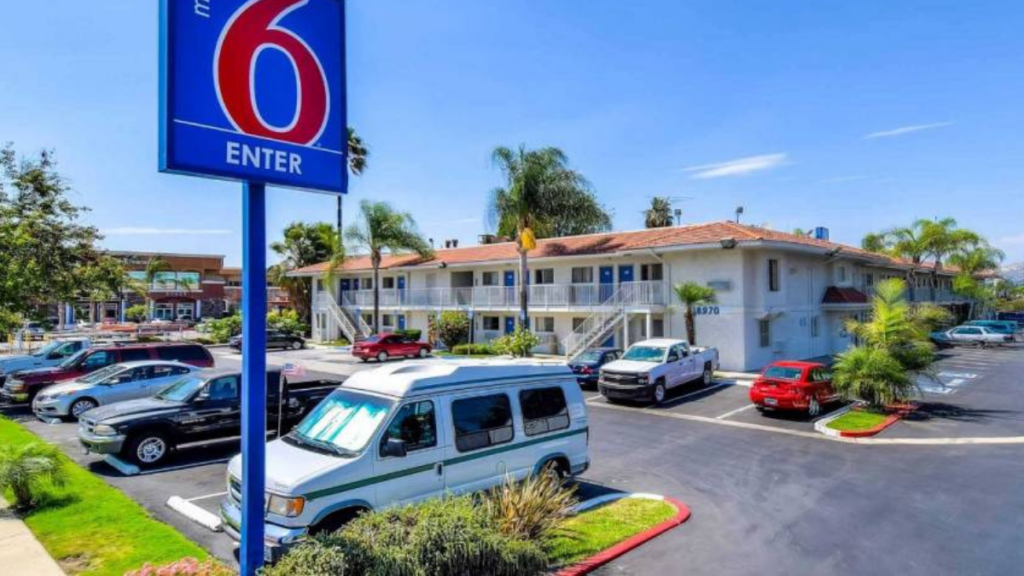
Motels are typically smaller than hotels and offer fewer amenities. However, motels are often less expensive than hotels and are a good option for travelers looking for a place to stay for a night or two.
Resorts
Resorts are large-scale properties often found in picturesque locations such as beaches, mountains, or islands. They provide a comprehensive experience, offering accommodations, dining, recreational activities, and sometimes even spa services. Guests can enjoy a self-contained vacation without needing to leave the property.
Restaurants
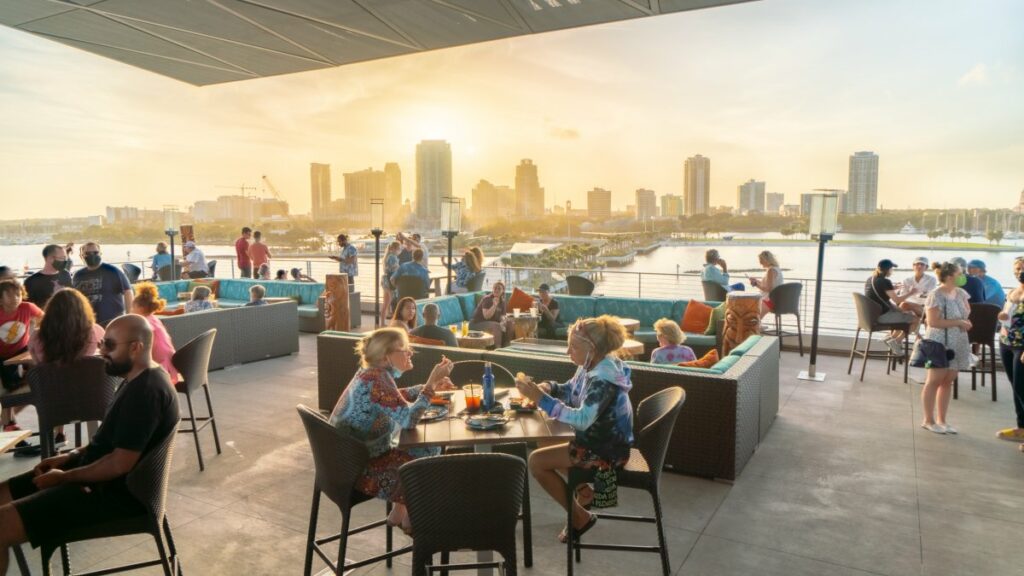
Restaurants are establishments primarily focused on serving meals to customers. They range from fast-food joints to high-end dining experiences, with diverse cuisines and ambiances.
Food Halls
Food halls are large spaces housing various individual food vendors and stalls, often offering a diverse range of cuisines. They provide a casual, communal dining experience where visitors can sample multiple dishes. Food halls are often found in urban areas, shopping malls, or markets and have shared seating.
Bars and Pubs
Bars and pubs are establishments where people go to socialize, relax, and enjoy beverages, especially alcoholic drinks. Many also serve food and host live entertainment or themed nights. Pubs, short for “public houses”, often have a cozy, community-centric atmosphere.
Breweries and Wineries
Breweries and wineries are facilities that produce beer and wine, respectively. Many open their doors to the public, offering tours of the production areas, tastings, and on-site restaurants or taprooms. They often showcase their unique products and production methods.
Spa & Wellness Centers
Spa and wellness centers offer services aimed at relaxation, health, and well-being. These include massages, facials, fitness programs, and other therapeutic treatments. Some are standalone, while others are part of hotels.
Travel Centers
Travel centers offer a variety of services to travelers, including a place to stay for the night, a restaurant, a gift shop, and a gas station. They generate revenue from services to travelers, like truck and auto services, showers, gas, food, and convenience items.
Conference Centers
Conference centers are large venues designed to host meetings, conventions, and exhibitions. They offer a range of facilities like meeting rooms, audiovisual equipment, and catering services. These venues are often used for business events, academic conferences, or trade shows.
Music Venues
Music venues are establishments or spaces where live music performances are held. They can range from intimate clubs to large concert halls or outdoor amphitheaters. These venues often provide food and drink services and host a variety of music genres.
Wedding Venues
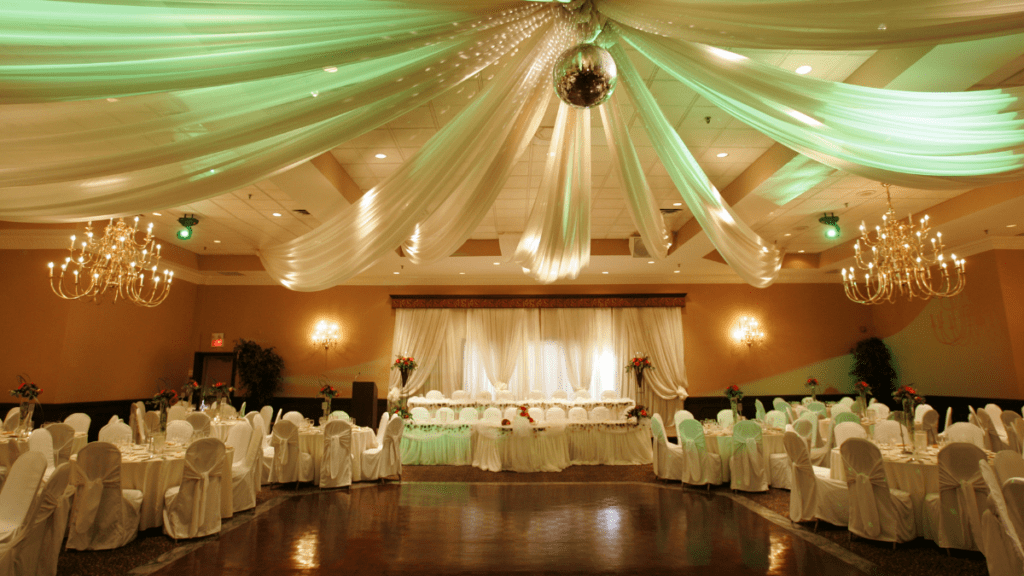
Wedding venues are spaces specifically designed or frequently used to host wedding ceremonies and receptions. They can range from traditional ballrooms or banquet halls to unique settings like beaches, vineyards, or historic mansions.
Water Parks
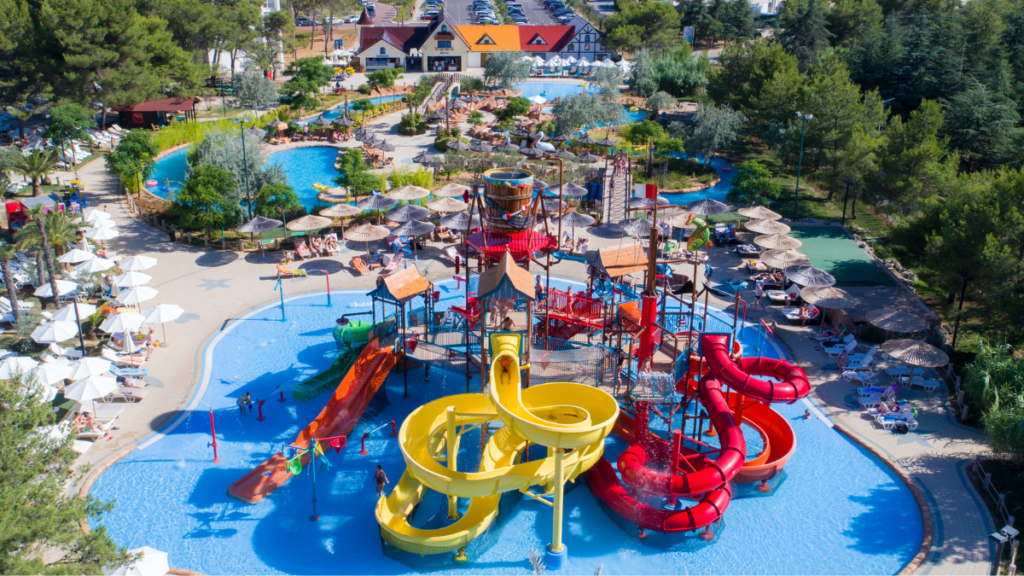

Have you ever been to Waterworld, Raging Waters, Six Flags Hurricane Harbor, or any other waterpark in the US? If so, you know what a water park is. If not, they offer a variety of water-based activities for guests, including swimming, slides, and wave pools.
Museums
Museums are institutions that collect, preserve, and display artifacts or artworks for public education and enjoyment. They often host temporary exhibitions, educational programs, or events. Some museums also have on-site restaurants, cafes, or gift shops.
Casinos
Casinos are establishments where people can engage in gambling activities. They offer a variety of games like slots, poker, and roulette. Many casinos also feature entertainment options, restaurants, and accommodations, making them popular for both gaming and leisure
Golf Courses
You probably know what a golf course is, if not from hitting the links yourself, from seeing Caddyshack or Happy Gilmore. But for the uninitiated, a golf course is a course where people can play the sport of golf. It typically consists of a series of holes, each with a teeing ground, fairway, rough and other hazards, and a green with a flagstick and cup. Golf courses typically offer a variety of activities for guests, including golf, tennis, and swimming.
Amusement Facilities
Amusement Facilities are a type of hospitality property that includes businesses such as amusement parks, water parks, arcades, bowling alleys, and other recreational businesses. These facilities typically have high startup and operating costs, but they also generate a lot of revenue from ticket sales, beverage and food sales, and other disparate income sources like merchandise, season passes, etc.
Tourist Attractions
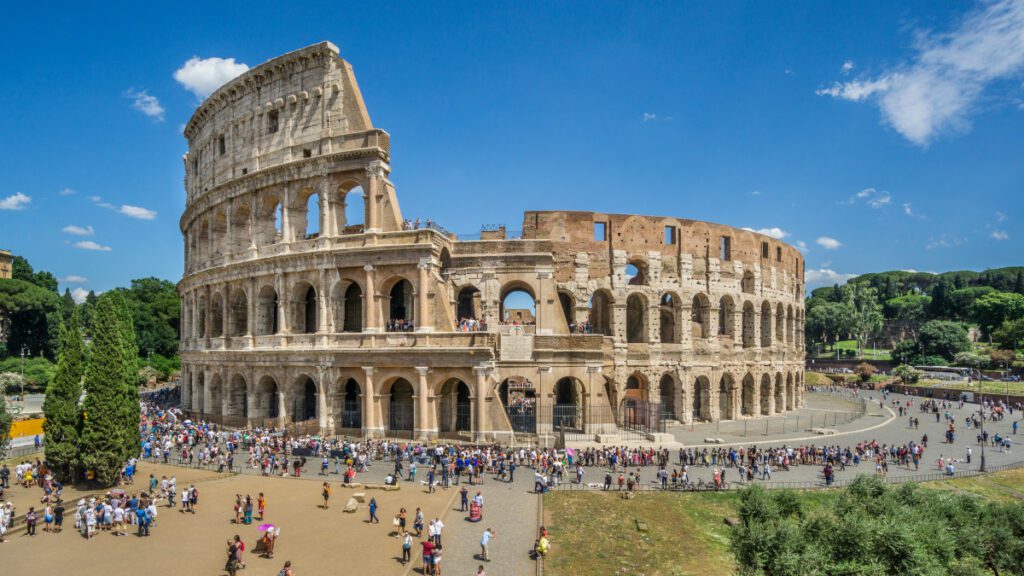

Tourist attractions are places of interest that draw visitors due to their cultural, historical, or natural significance. They can include landmarks, natural wonders, or theme parks. These attractions often have facilities like guided tours, souvenir shops, and dining options.
Theme Parks


Theme parks are family friendly recreational facilities offering activities such as rides, games, and performances. They provide fun experiences in a safe, controlled environment. Theme parks often have on-site dining options as well.
Cinemas and Theaters
Cinemas and theaters are venues where people go to watch movies, plays, or live performances. They provide entertainment in the form of visual and performing arts. Many cinemas and theaters offer concessions like popcorn and drinks, and some have luxury seating or dining services.
Nightclubs
Nightclubs are entertainment venues focused on music, dancing, and nightlife. They often have DJs or live performances, and serve alcoholic beverages. Nightclubs are known for their vibrant atmosphere, themed nights, and sometimes exclusive guest lists.
5 Types of Hotels
Hotels are the most common and widespread type of hospitality property. However, not all hotels are the same. Below we explore the 5 primary types of hotels:


Full-Service Hotels
Full-service hotels typically offer the most amenities, including on-site restaurants, room service, concierge service, fitness centers, and business centers. Although they offer the most amenities, they are also the most expensive type of hotel.


Select-Service Hotels
Select-service hotels are a step below full-service in terms of amenities and price. These properties typically have on-site restaurants and fitness centers but lack room service and concierge service.


Limited-Service Hotels
Limited-service hotels are the most basic type of hotel, offering little more than a room and a bed. These hospitality properties are typically the least expensive but also the least convenient.


Extended Stay Hotels
Extended stay hotels are designed for guests who need to stay for longer periods, offering kitchenettes and other conveniences not typically found in traditional hotels.


Budget Hotels
Budget hotels are the most affordable option but also the most basic. These properties typically have limited amenities and little to no on-site staff.
The #1 Rental Property Newsletter
Once a month, we send out an exclusive Rental Property Market Update with top stories, current mortgage rates, building products, and more. No spam and unsubscribe anytime.


Hospitality Real Estate News
- CoStar Group Acquiring Matterport Spatial Property Data Company in $1.6 Billion Deal


- Blackstone Acquiring Multifamily Owner AIR Communities for $10 Billion


- Property Meld and Lula Launch ‘Vendor Nexus’ Program


Hospitality Property Management
Hospitality property management is a specialized type of real estate management that deals with the oversight of day-to-day operations of hospitality-related properties such as hotels, resorts, and restaurants. As a hospitality property investor, you can choose to get hands on with the day-to-day management or outsource it to a professional company. Either way you choose, understanding the ins and outs of hospitality property management is essential for every investor.
Top Hospitality Tools
Hospitality Real Estate Finance
Hospitality Investing Strategies


If owning a hotel or golf course sounds exciting to you, then investing in a hospitality property might be a good option to pursue. The two most common ways to invest in hospitality properties are Direct Ownership and Indirect Ownership. Direct ownership is you are directly involved in the property’s operations. Indirect Ownership is when you are passively or not involved in the property’s operations.
Hospitality Property Financing



Financing hospitality rental properties is a very important consideration for investors aiming to venture into this sector. Hospitality properties often require specialized financing due to their unique operational characteristics and revenue patterns. Lenders typically assess the property’s location, historical and projected revenue, as well as the investor’s experience in the hospitality industry.
Top 5 Largest Hospitality Companies








The hospitality real estate sector specializes in properties and developments that cater to travelers and tourists. This industry encompasses a wide range of properties, including hotels, resorts, and other accommodations, each offering unique experiences and services to their guests. The largest hospitality real estate companies are known for their focus on customer experience, comfort, and luxury, often integrating innovative designs and amenities to stand out in a competitive market. Their success is contributed to their ability to adapt to ever changing consumer preferences and ensuring a high-quality experience for their clientele.
Search Rental Real Estate
Try searching out site for hundreds of rental property topics ranging from property management, investor tool reviews, investment research, and more.
Hospitality Real Estate Calculators
Hospitality Real Estate FAQ
Are Short Term Vacation Rentals Considered Hospitality Properties?
Short term vacation rentals are generally categorized as residential properties by the IRS, but they can also qualify as active businesses depending on the level of services provided and the frequency of rentals. If a vacation rental meets certain criteria, such as providing substantial services or being rented out for a significant portion of the year, it may be considered a hospitality property for tax and business purposes.
How Does Seasonality Affect the Profitability of Hospitality Properties?
Seasonality has a direct and significant impact on the profitability of hospitality properties by influencing occupancy and pricing throughout the year. Properties like resorts and hotels in seasonal destinations may experience high demand and increased rates during peak seasons, while facing lower occupancy and reduced revenue during off-peak times. Similarly, properties such as water parks and outdoor wedding venues might see sharp declines during winter seasons.
More Types of Rental Real Estate
About the Author


Ryan Nelson
I’m an investor, real estate developer, and property manager with hands-on experience in all types of real estate from single family homes up to hundreds of thousands of square feet of commercial real estate. RentalRealEstate is my mission to create the ultimate real estate investor platform for expert resources, reviews and tools. Learn more about my story.
Disclaimer: The information provided on this website does not, and is not intended to, constitute legal and/or financial advice. As such, all information, content, and materials available on this site are for general informational purposes only. Please review our Editorial Standards for more info.









